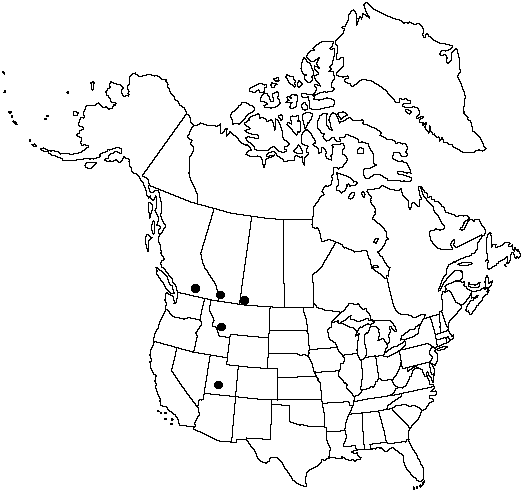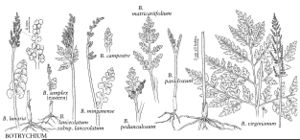Botrychium paradoxum
Amer. Fern J. 71: 24. 1981.
Trophophores converted entirely to second fertile segment, stalk 1/2 length of fertile segment. Sporophores double, 2 per leaf, 1-pinnate, 0.5–4 cm. 2n =180.
Habitat: Sporophores in June to August. Difficult to detect, plants usually hidden under other vegetation, in snowfields, secondary growth pastures
Elevation: 1500–3000 m
Distribution

Alta., B.C., Sask., Mont., Utah.
Discussion
The leaf structure of Botrychium paradoxum is uniform and unique. Very rare teratological individuals of other moonwort species may have trophophores partially or wholly transformed into sporophores.
Botrychium × watertonense W.H. Wagner, known only from one locality in western Alberta, is the sterile hybrid of B. hesperium and B. paradoxum. It can be identified by its trophophore pinnae; all are bordered with sporangia. It may reproduce by some unknown mechanism, such as unreduced spores (W.H. Wagner Jr. et al. 1984).
Of conservation concern.
Selected References
None.
